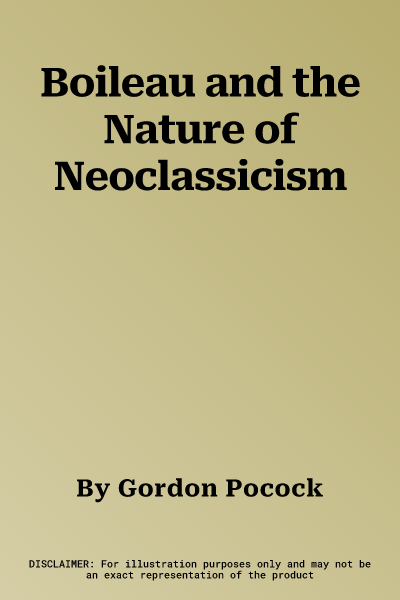Gordon Pocock
(Author)Boileau and the Nature of NeoclassicismHardcover, 19 June 1980

Temporarily out of stock
Free Delivery
Cash on Delivery
15 Days
Free Returns
Secure Checkout

Part of Series
Major European Authors
Part of Series
Cambridge Monographs on Mechanics and Applied Mathematics
Print Length
224 pages
Language
English
Publisher
Cambridge University Press
Date Published
19 Jun 1980
ISBN-10
0521227720
ISBN-13
9780521227728
Description
Product Details
Author:
Book Format:
Hardcover
Date Published:
19 June 1980
Dimensions:
21.59 x
13.79 x
2.01 cm
ISBN-10:
0521227720
ISBN-13:
9780521227728
Language:
English
Location:
Cambridge
Pages:
224
Publisher:
Weight:
408.23 gm